Until genocide ends: Yemen expands pro-Gaza operations in fourth phase
By Ivan Kesic
As part of its military operations in support of Palestinians in the Gaza Strip, the Yemeni military continues to inflict lethal blows on the Israeli regime and its Western allies.
In a statement on Tuesday, the Yemeni armed forces said for the first time in months, there was no American military movement in the Red Sea for the past 48 hours, which made navigation safer.
The fact that Americans have now decided to avoid troubled waters, according to observers, shows the impact of military operations carried out by the forces of the poorest Arab nation in support of Gaza.
In recent days and weeks, the Yemeni military continued with its military operations, warning both the Israeli-occupying regime and its Western allies to stop the genocidal war against Palestinians.
Earlier this week, another US MQ-9 Reaper drone was downed and the USS Eisenhower aircraft carrier was also targeted in the Red Sea by the Yemeni armed forces in line with their warnings.
On Friday, Yemen's military spokesperson Yahya Saree announced that the country’s military had launched a missile attack on the USS Eisenhower in the Red Sea after American-British airstrikes on the Arab country resulted in many civilian casualties the day before.
Another military operation, Saree added, "struck an American destroyer in the Red Sea with ballistic missiles and drones," and in four other operations, other enemy ships were targeted.
Mohammed Ali al-Houthi, a member of Yemen's Supreme Political Council, challenged the US Navy's claims that there was no damage, saying if the Eisenhower carrier is still intact, “the best way to prove that it was not targeted is a live broadcast to prove that the Eisenhower carrier remains as it is."
According to several independent sources, the US Eisenhower aircraft carrier swiftly moved away from Yemen after being targeted, which was followed by another attack on the carrier and several other American military ships sailing in regional waters in defiance of warnings.
Yemen's military in recent months has stepped up attacks on shipping in the Red Sea, the Gulf of Aden, the Indian Ocean, and most recently in the Mediterranean, demanding that Israel end the genocidal war on Gaza, which has killed more than 36,600 Palestinians since October last year.
What preceded the strikes on US carriers?
The latest Yemeni operations were preceded by joint American-British airstrikes on Thursday night against multiple targets in the western Yemeni provinces of Sana'a, Hudaydah, and Ta'izz.
Four attacks were carried out on the capital city of Sana'a, resulting in one injury, two more in the same province, one in the Hayfan area in Ta'izz province, and six more in Hudaydah province.
The Hudaydah province, situated along the coast of the Red Sea, was the main target of the Anglo-American attacks on the port of Salif, the Glaifeqa camp, two houses and the Hudaydah radio building.
The airstrikes caused damage to the Hudaydah radio site, in front of Thawra Hospital, as well as the coast guard building in the port of Salif, in addition to damaging several commercial ships in the port.
According to official Yemeni sources, at least 16 people were martyred and more than 40 were injured in those attacks, which they called "a violation of international law and a complete war crime."
Yemeni officials believe that the US-British strikes were triggered by Yemen's latest downing of an American MQ-9 Reaper drone in Marib province on Wednesday morning.
This combat and reconnaissance drone costs over $30 million and its latest downing is the second such interception in less than two weeks, as well as the sixth since the beginning of the Yemeni operations in solidarity with Palestine.
Following the attacks, Ali al-Qahoum, a member of the Political Bureau of Yemen's Ansarullah resistance movement, vowed a "painful response" to the atrocities.
“The Americans and Britons must have understood how powerful Yemeni strikes will be. Our ballistic missiles can target desired targets in the sea and in the occupied Palestinian territories," he was quoted as saying by Lebanon’s al-Mayadeen TV network.
Yemeni forces deploy new ballistic missile against occupied territorieshttps://t.co/G5QmLoLuVS pic.twitter.com/7AuZvcwbpK
— Press TV 🔻 (@PressTV) June 4, 2024
What's the context of the Yemeni operations?
On Wednesday, the same day as the latest downing of a US drone, Yemen announced that its naval, air, and missile forces had carried out six military operations against ships that did not comply with the set conditions to avoid supplying material to the Israeli regime.
These strikes were carried out "in support of the oppressed Palestinian people and in response to the crimes of the Zionist enemy against the displaced in the Rafah area of the Gaza Strip, and as part of the expansion of military operations in the fourth phase of escalation," the statement issued by the Yemeni Armed Forces said.
Three military operations were carried out in the Red Sea, using a number of naval missiles, ballistic missiles and drones: the first against the ship LAAX, which was hit directly and significantly damaged, the second against the ship MOREA, and the third against the ship Sealady.
The Yemeni Armed Forces further carried out two military operations targeting the American ships ALBA and Maersk HARTFORD, both in the Arabian Sea, using a number of missiles and drones.
The sixth operation was the most strategically significant as multiple cruise missiles targeted the ship Minerva Antonia in the eastern Mediterranean, representing the second such strike on a target in the Mediterranean Sea, following the attack on the Israeli ship Essex four days earlier.
With this, Yemen raised the bar and fulfilled its promise from the beginning of May, when Ansarullah leader Sayyed Abdul-Malik al-Houthi and the Yemeni Armed Forces' spokesperson Brigadier General. Saree announced the fourth phase of operations against the Israeli regime.
The fourth phase of retaliatory operations outlined three points: targeting ships that violate the set conditions, immediate implementation of the action plan, and imposing sanctions on all ships related to supplying occupied Palestinian ports if the Israeli regime invades Rafah.
In the first point, it was emphasized that all ships that violate Yemeni-imposed sanctions banning the use of occupied Palestinian ports on the Mediterranean coast will be targeted in any area within the Yemeni military's reach.
Yemeni authorities have asserted that these operations will stop when the aggression against people in Gaza stops and humanitarian aid is allowed inside the territory by the Israeli regime.
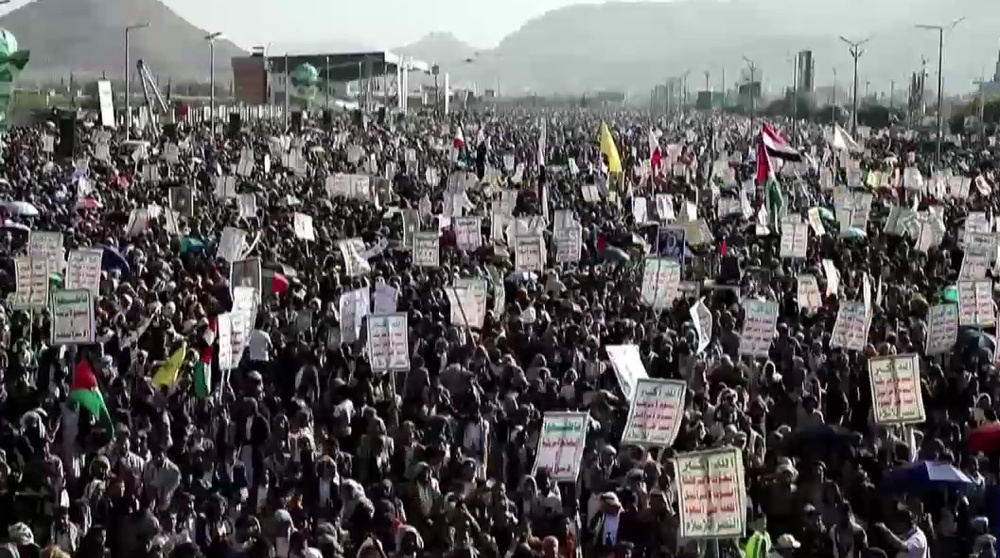
Mass protests in Yemen against Trump’s Gaza relocation plan
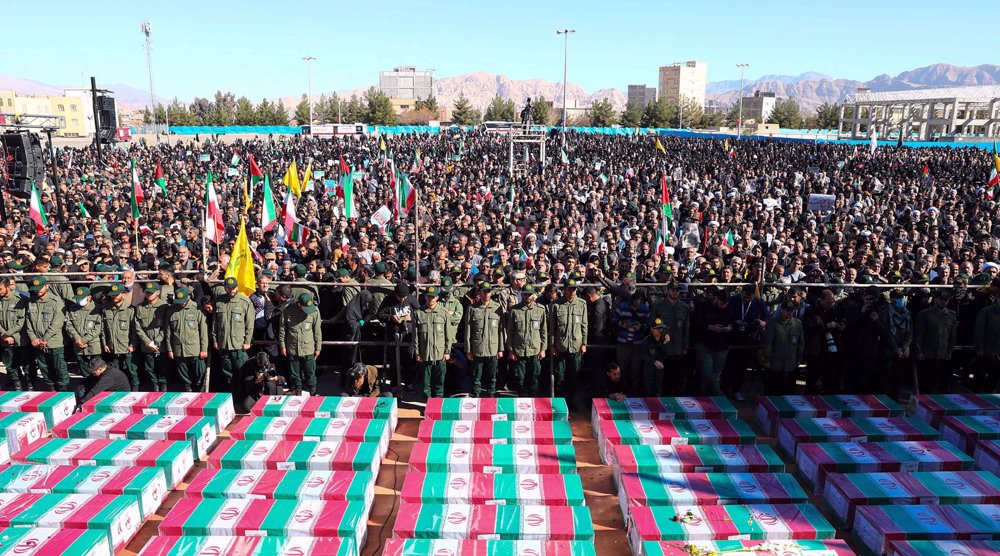
Iran at forefront of fight against al-Qaeda, Daesh, supports regional peace: Envoy
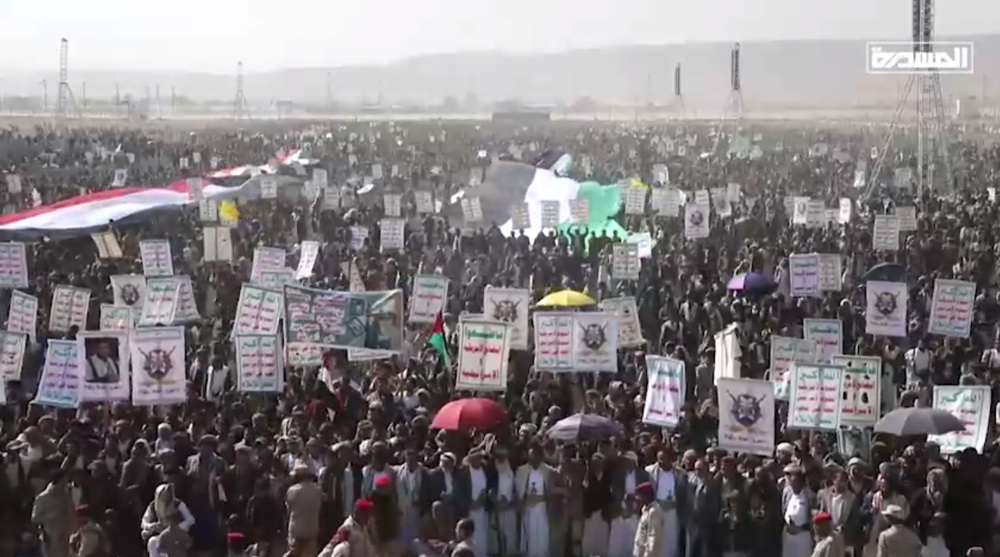
Yemenis rally en masse in support of Palestine, Axis of Resistance
Israeli drone strike hits southern Lebanon in new ceasefire violation
Iran reports substantial increase in trade with neighbors
Grand flop: How USAID bankrolled anti-Iran groups for botched ‘regime change’ plot
VIDEO | Jenin's economy crushed by incessant Israeli military raids
VIDEO | Ex-Italian lawmaker's book exposes Israeli genocide in Gaza and media complicity
Israeli military 'preparing offensive plans' in Gaza: Army chief
Iran, Lebanon FMs say ready to solve cancellation of flights
Explainer: What makes Iran's Hadid-110 kamikaze drone and sub-launched loitering munition unique?


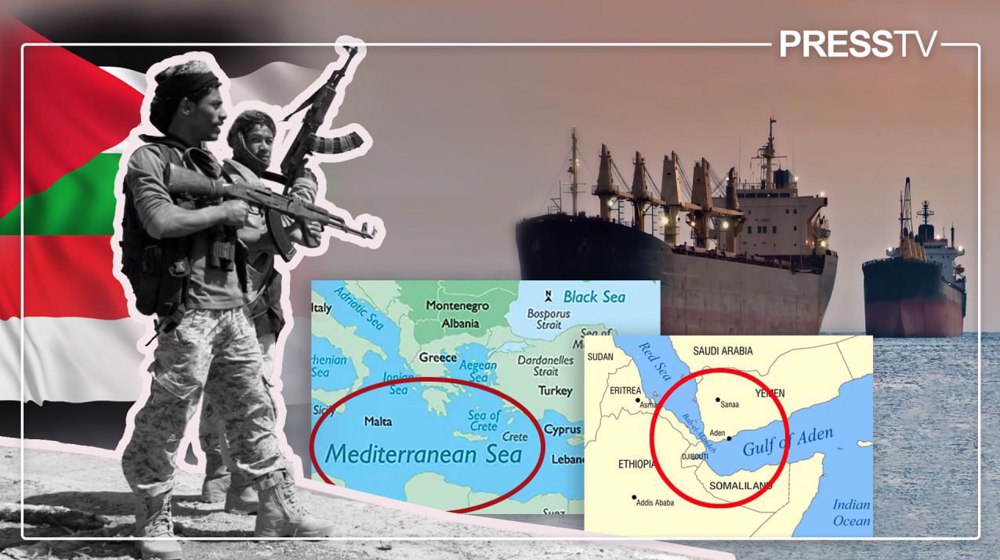
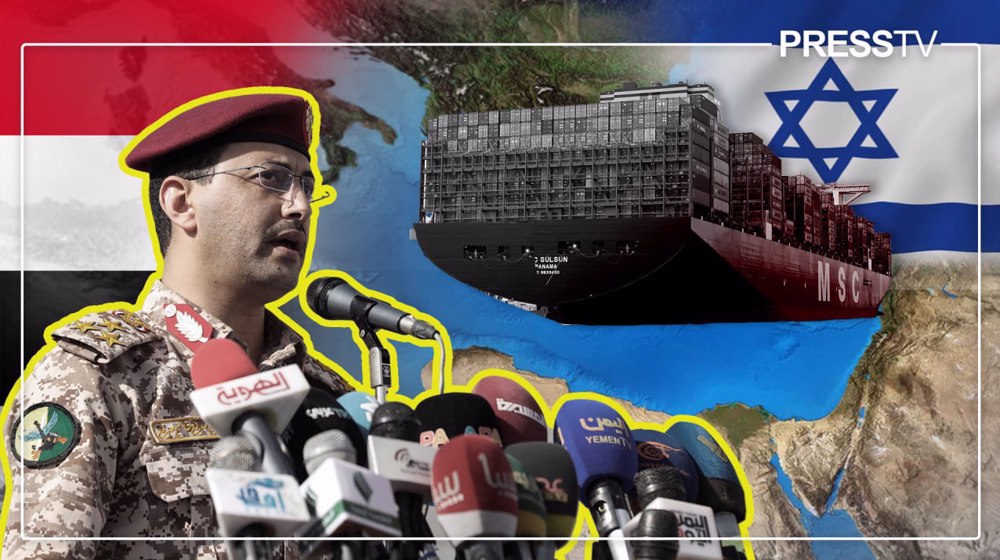




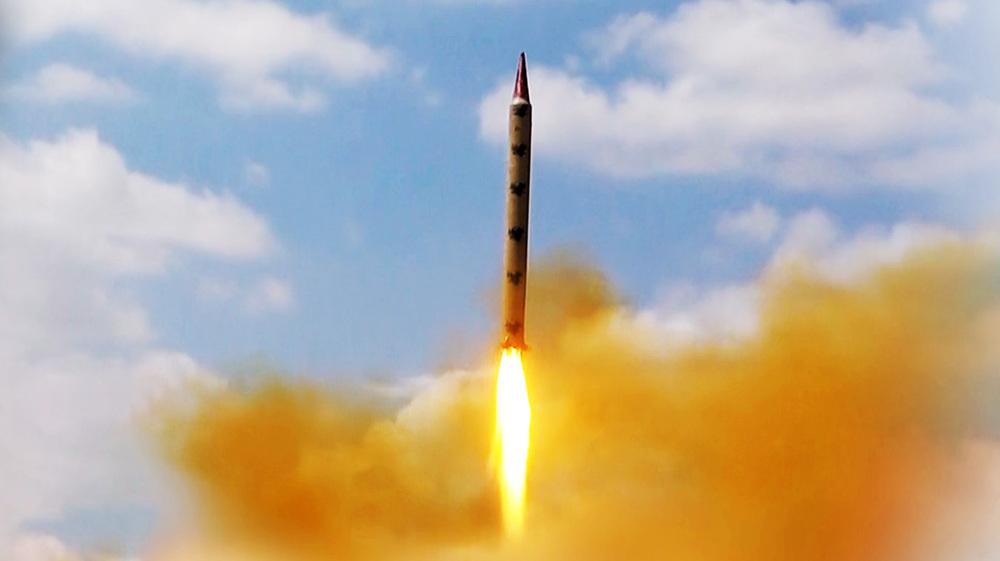
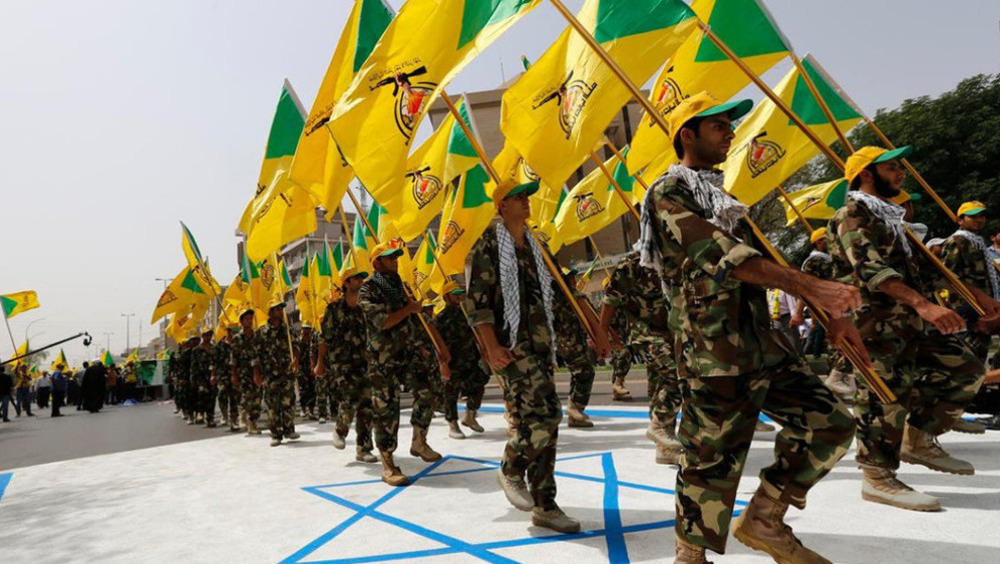
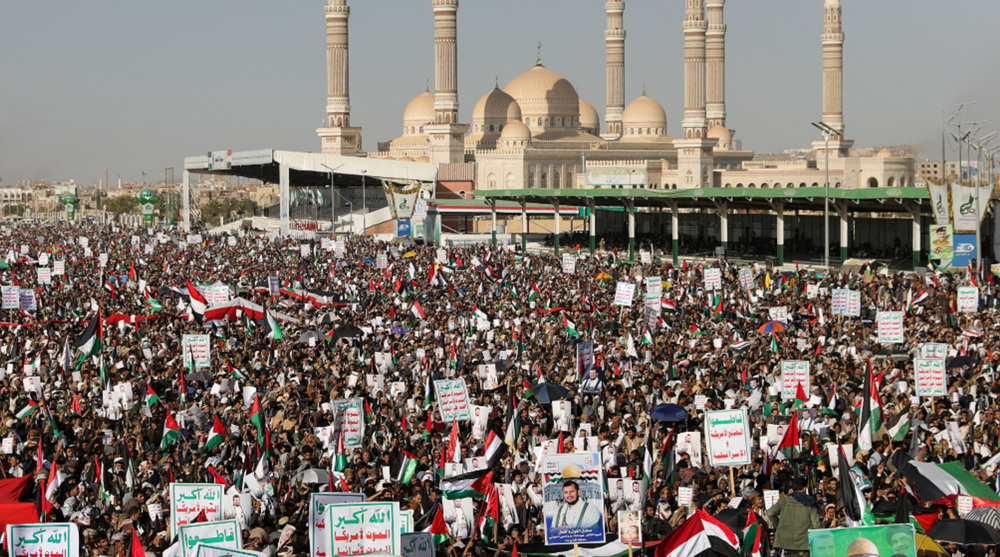
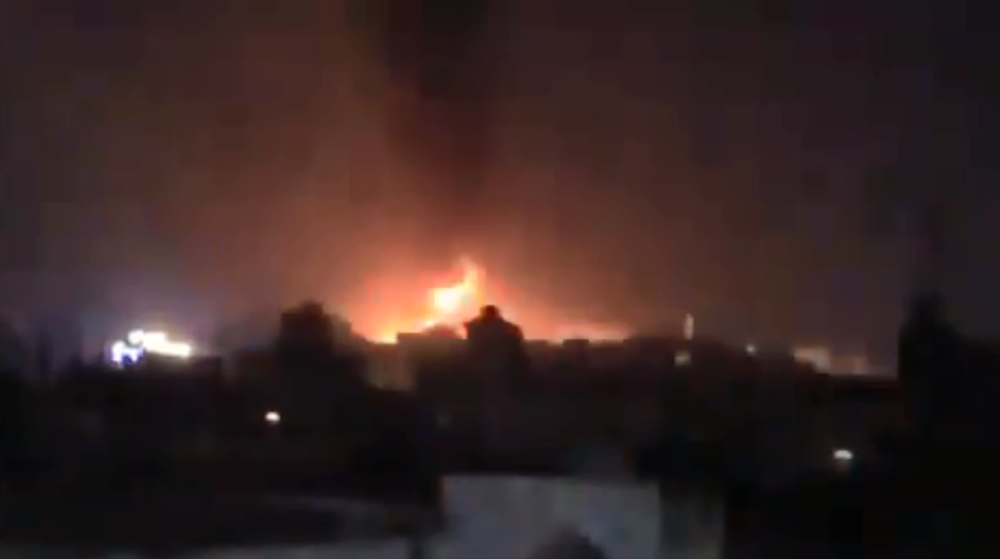

 This makes it easy to access the Press TV website
This makes it easy to access the Press TV website